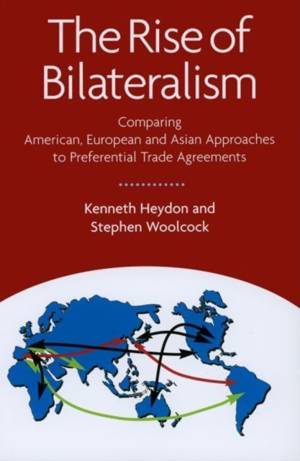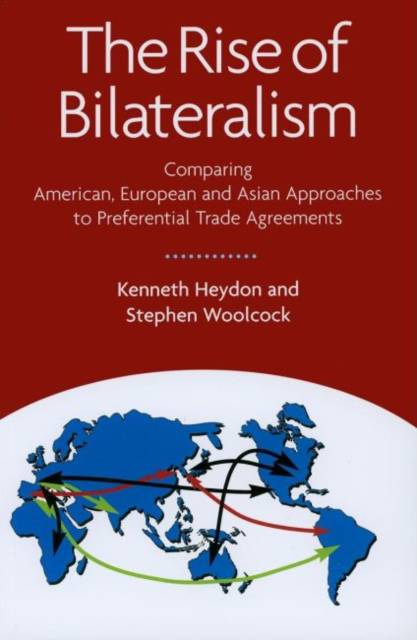
- Afhalen na 1 uur in een winkel met voorraad
- Gratis thuislevering in België vanaf € 30
- Ruim aanbod met 7 miljoen producten
- Afhalen na 1 uur in een winkel met voorraad
- Gratis thuislevering in België vanaf € 30
- Ruim aanbod met 7 miljoen producten
The Rise of Bilateralism
Comparing American, European, and Asian Approaches to Preferential Trade Agreements
Kenneth Heydon, Stephen WoolcockOmschrijving
As multilateral negotiations become increasingly complex and protracted, preferential trade agreements have become the centerpiece of trade diplomacy. Pushing beyond tariffs into deep integration and beyond regionalism into a web of bilateral deals, these agreements are raising concerns about coercion by bigger players.
This study examines American, European, and Asian approaches to preferential trade agreements and their effect on trade, investment, and economic welfare. The book draws on the rich field of theoretical works but also fills a gap in the literature by examining in detail the actual substance of agreements negotiated and envisaged.
With bilateralism in trade driven by foreign policy, environmental, and social concerns, as well as market access objectives, the key question is how the various negotiating forums interact. This volume argues that preferential agreements can complement the multilateral system--but only if that system is strong enough to continue to reduce barriers to trade and strengthen rules that limit the distorting effects of bilateralism.
Specificaties
Betrokkenen
- Auteur(s):
- Uitgeverij:
Inhoud
- Aantal bladzijden:
- 276
- Taal:
- Engels
Eigenschappen
- Productcode (EAN):
- 9789280811629
- Verschijningsdatum:
- 26/05/2009
- Uitvoering:
- Paperback
- Formaat:
- Trade paperback (VS)
- Afmetingen:
- 152 mm x 229 mm
- Gewicht:
- 510 g

Alleen bij Standaard Boekhandel
Beoordelingen
We publiceren alleen reviews die voldoen aan de voorwaarden voor reviews. Bekijk onze voorwaarden voor reviews.











